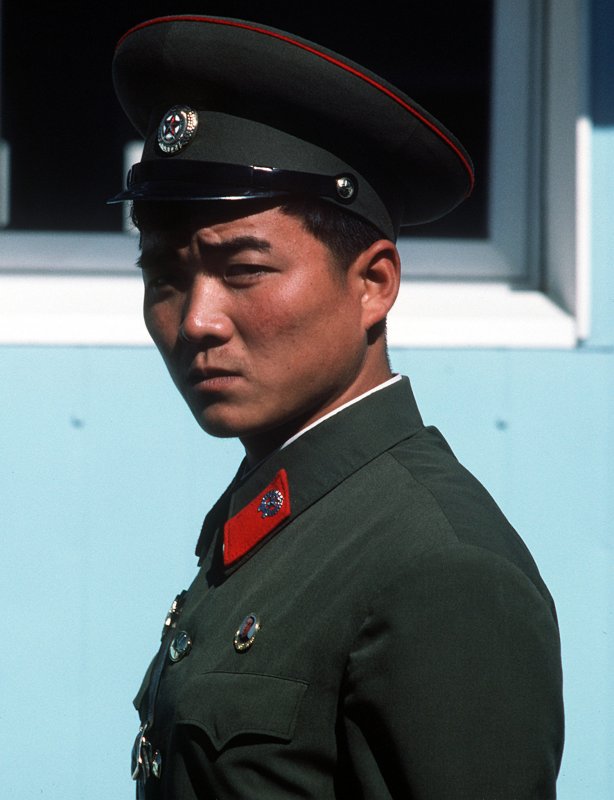This undated department of defense photo shows a North Korean security officer standing guard in the Demilitarized Zone. On Monday, May 25, 2009 North Korea allegedly detonated a nuclear device during an underground test and test fired several short range missile. North Korea announced that it has restarted its nuclear weapons research program. (UPI Photo/James Mossman/USAF) |
License Photo
PYONGYANG, North Korea, Dec. 21 (UPI) -- North Korea has hedged its threat to forcefully retaliate in response to South Korea live-fire war games on an island shelled by North Korean artillery last month.
Ahead of the exercise, the North Korean official news agency KCNA said the "intensity and scope" of its retaliation would be much worse if Seoul went ahead with its one-day live-fire drills on Yeonpyeong Island.
The threat heightened tensions on the Korean Peninsula and may put even more pressure on China to rein in its client state. But once the drill took place, North Korea climbed down from its threat, saying South Korea's drill were "not worth" a response.
"The revolutionary armed forces of the [Democratic People's Republic of Korea] did not feel any need to retaliate against every despicable military provocation," the agency said, quoting a communique from the North's Korean People's Army Supreme Command that called the drills a "childish play with fire."
The announcement followed a visit by New Mexico Gov. Bill Richardson who praised North Korea for reacting "in a statesman like manner," expressing hope also that Pyongyang's proposal to allow international inspectors to visit a newly unveiled uranium-enrichment facility would "signal a new chapter and a round of dialogue to lessen tension on the Korean Peninsula."
Although the Korean War ended in 1953, the two countries haven't signed a peace agreement, remaining divided by one of the world's most fortified borders.
Relations between North and South have soured since the Nov. 23 shelling of Yeonpyeong Island, which North Korea claims its own, although it has been internationally recognized as part of South Korea.
Four people -- two marines and two civilians -- were killed in the November attack, which came eight months after a North Korean torpedo sank a South Korean warship, killing 46 sailors.
In a move to demonstrate their strength and solidarity, South Korea and the U.S. soon began a series of military exercises.
Adding to the tension, though, North Korea last month revealed a new uranium enrichment plant, stoking fears about its nuclear weapons program.
An estimated 28,500 U.S. troops are based in South Korea to deter potential aggression from North Korea.
A survey done by Realmeter, one of South Korea's largest market researchers, on Saturday and Sunday found that 67 percent of respondents favored going through with the military drill that Seoul carried out Monday. Government officials argued they needed to proceed with the drill to prevent North Korea's attack from creating a de facto change in a maritime boundary, The Wall Street Journal reported.















